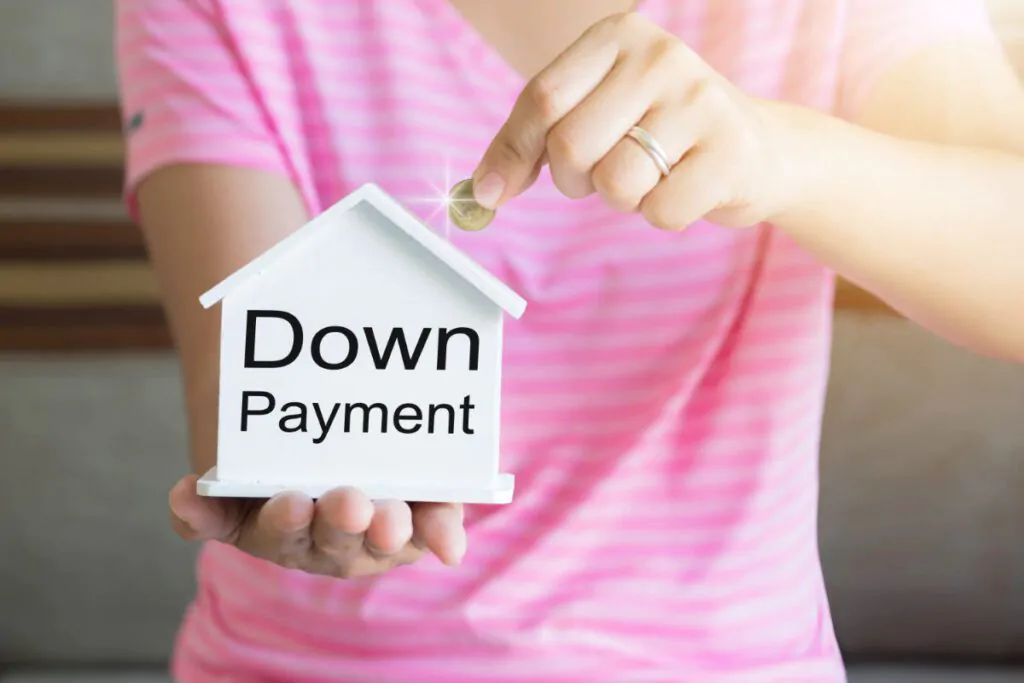Buying a home or investing in real estate can often feel like navigating uncharted waters. With fluctuating markets and a plethora of financing options, it’s easy to feel overwhelmed by the sheer amount of decisions that need to be made.
This article is designed to answer common questions and equip you with knowledge about upcoming trends—information that could give you an edge in your future real estate endeavors.
Stay tuned for real estate questions and answers tailored just for you!
How Much Down Payment Do I Need to Buy a House in 2024?
With so many questions about real estate, it’s going to take a while for us to delve into everything one by one. But let’s start with the most common one: down payments.
As we delve into the specifics of homeownership, a crucial piece to consider is your down payment. In 2024, you’ll typically need to put down anywhere from 3% to 20% of the home’s purchase price.
Certain loan programs aimed at first-time buyers can offer lower requirements, making it easier for you to get into your new home with less upfront cash. For example, FHA loans often allow down payments as low as 3.5%.
However, if you’re able to contribute a larger sum—say 20% or more—you may benefit from reduced mortgage interest rates and avoid paying private mortgage insurance (PMI), which could save you thousands over the life of your loan.
It’s wise to evaluate your finances carefully and aim for a significant down payment that suits both your budget and long-term financial goals when entering the real estate market.

How Do I Sell My House Quickly and for Top Dollar?
One of the most asked real estate FAQs is how to sell a house for the top dollar. Selling your house fast and at a high price starts with setting the stage for success. First, ensure your home is in tip-top shape by making necessary repairs and upgrades that appeal to buyers.
Fresh paint, a well-groomed yard, and clean windows can make a significant difference. Next, declutter every room to make spaces look larger and more inviting.
Price your home competitively, but don’t set it too low; you want to attract serious offers without leaving money on the table. Work with an experienced real estate agent who knows the local market inside and out.
They can help you price accurately and market effectively through professional photos, virtual tours, and open houses.

Highlight your home’s best features in all advertising materials. This attracts potential buyers looking for those particular qualities. Time your sale right — selling during peak buying seasons could result in quicker offers at better prices.
Stay flexible with showing times; the more available your home is for viewing, the higher your chance of finding a buyer quickly. Consider incentives like paying closing costs or including appliances if it seals the deal faster while still getting top dollar for your property.
Lastly, be prepared to be smart but fair at the negotiation table — knowing when to stand firm on price or when to compromise can lead straight to successful sales contracts.
What Are the Most Common Mistakes First-Time Home Buyers Make?
Many first-time home buyers jump into the market without a clear budget. This oversight can lead to overspending or settling for homes that don’t match their needs. They often skip pre-approval, which is crucial in showing sellers they are serious and capable buyers.
It’s easy to get swept up by looks and ignore important inspections, but overlooking this step can result in costly repairs down the line.
Another frequent error is going it alone rather than enlisting a seasoned real estate agent for guidance through the complex buying process. First-time home buyers sometimes forget about additional costs like closing fees, property taxes, and maintenance expenses.

These aren’t always apparent upfront but can significantly impact overall affordability.
Ready to make your next big move? Let’s dive into how you get pre-approved for a mortgage – your key to opening doors in the housing market!
How Do I Get Pre-Approved for a Mortgage?
Some of the best questions about real estate from homeowners is how they can get pre-approved for a mortgage. Avoid common mistakes when applying for a mortgage. First, gather necessary financial documents such as pay stubs and bank statements. Next, reach out to multiple lenders to compare interest rates and terms.
Then, complete the pre-approval application provided by your chosen lender and wait for their decision.
Prepare in advance to make this process smoother. Gather essential financial documents like pay stubs and bank statements before reaching out to multiple lenders for a comparison of interest rates and terms offered on the market.
What Are the Different Types of Real Estate Investments?
Another common real estate question is about understanding the different types of investments. Investing in real estate offers various options, including rental properties, commercial real estate, and real estate investment trusts (REITs). Rental properties involve purchasing residential or commercial units to rent out to tenants for a monthly income.
Commercial real estate involves investing in retail spaces, office buildings, or industrial properties. REITs are companies that own, operate, or finance income-generating real estate across a range of property sectors.
Another option is to invest in real estate syndication, where multiple investors pool their resources to purchase large properties they might not be able to afford individually. Additionally, you can consider fix-and-flip investments that involve buying distressed properties at a low price and renovating them before selling at a higher price for profit.
Each type of investment has its pros and cons, so it’s essential to research and understand the specifics before diving in.
How Do I Find the Right Real Estate Agent for Me?
Finding the right real estate agent for you involves conducting research, asking for recommendations, and interviewing potential agents to see who best fits your needs.
Keep reading for more answers to your burning real estate questions.

What Are the Tax Implications of Selling or Buying a Home?
When selling or buying a home, you must consider the tax implications. Any profit from selling your primary residence may be subject to capital gains tax. However, if you’ve lived in the home for at least two out of the last five years, you may qualify for an exclusion depending on your filing status and gain amount.
On the other hand, property taxes and mortgage interest are typically deductible on your federal income tax return when buying a home. It’s vital to understand these implications as they can significantly impact your finances.
In addition to potential capital gains taxes and deductions, there may also be state-specific taxes or incentives that could affect the overall tax implications of selling or buying real estate.
What Should I Expect at Closing?
After navigating the tax implications of buying or selling a home, you’ll soon find yourself at the closing table. This is where all parties involved in the transaction come together to finalize the sale.
At this stage, expect to sign a large stack of documents, including your mortgage and property transfer paperwork. You’ll be asked for a cashier’s check or wire transfer for your down payment and closing costs.
Once everything is signed and funds are transferred, you’ll receive the keys to your new home!
Conclusion

These practical strategies are designed to simplify your journey and yield favorable results. Implementing these approaches can lead to significant improvements in your real estate endeavors. Consider exploring further resources to deepen your understanding and refine your approach. For the best advice in home purchasing, talk to one of the real estate agents at Team Garner Realty Group. We provide home buyers the best options for their home needs and help them get their dream home.
Take proactive steps toward achieving success in the dynamic world of real estate.

